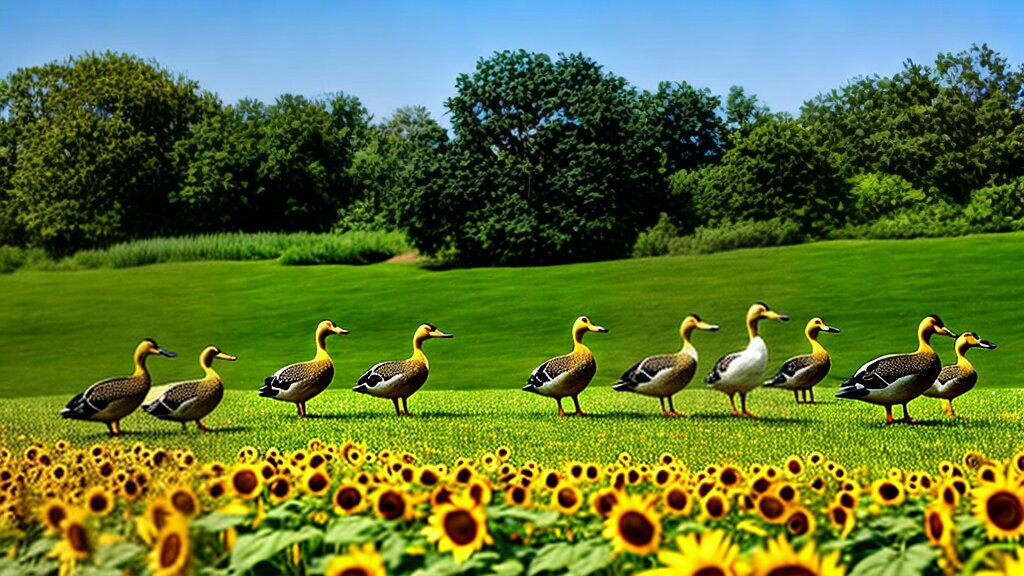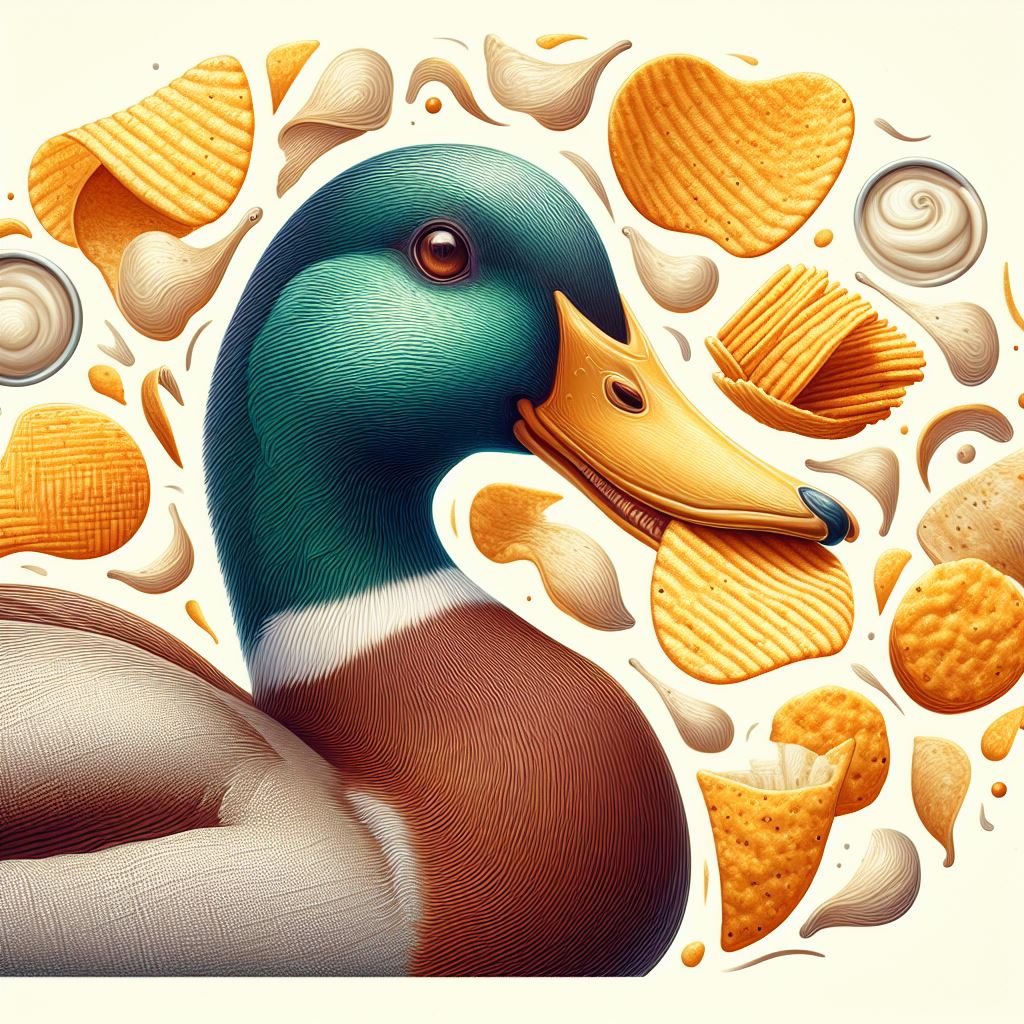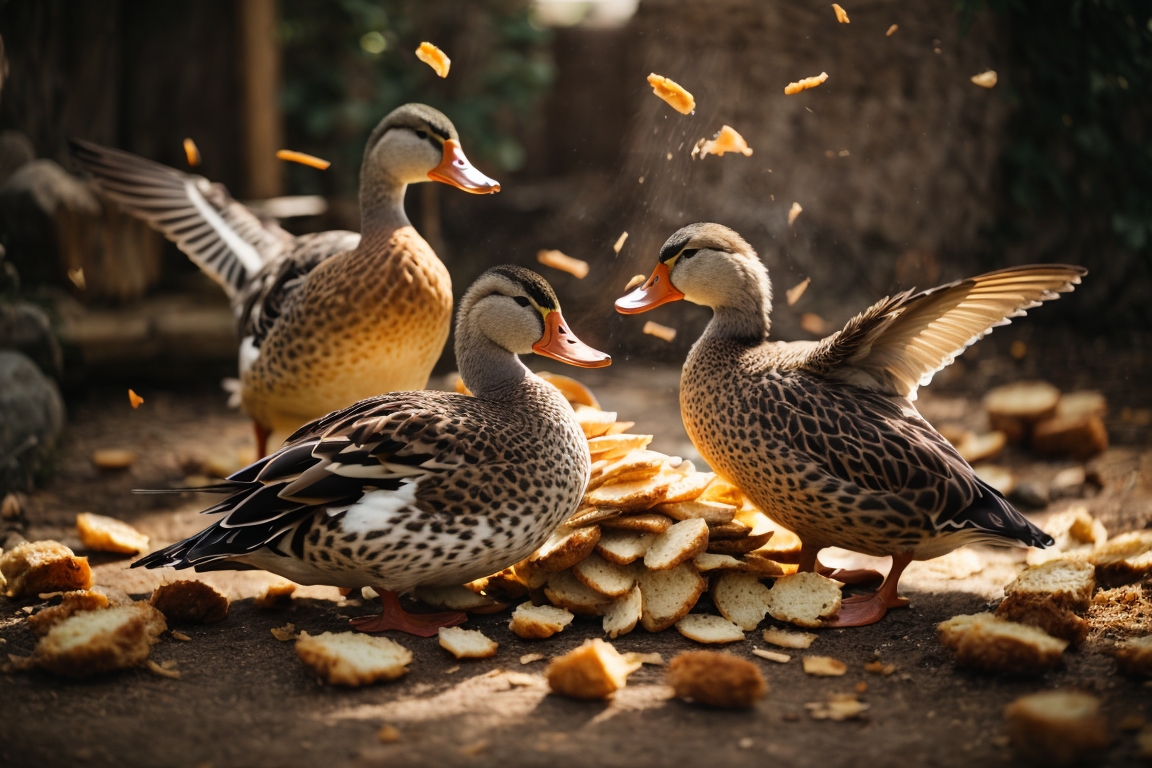Do Ducks Eat Grass? Facts on Duck Nutrition
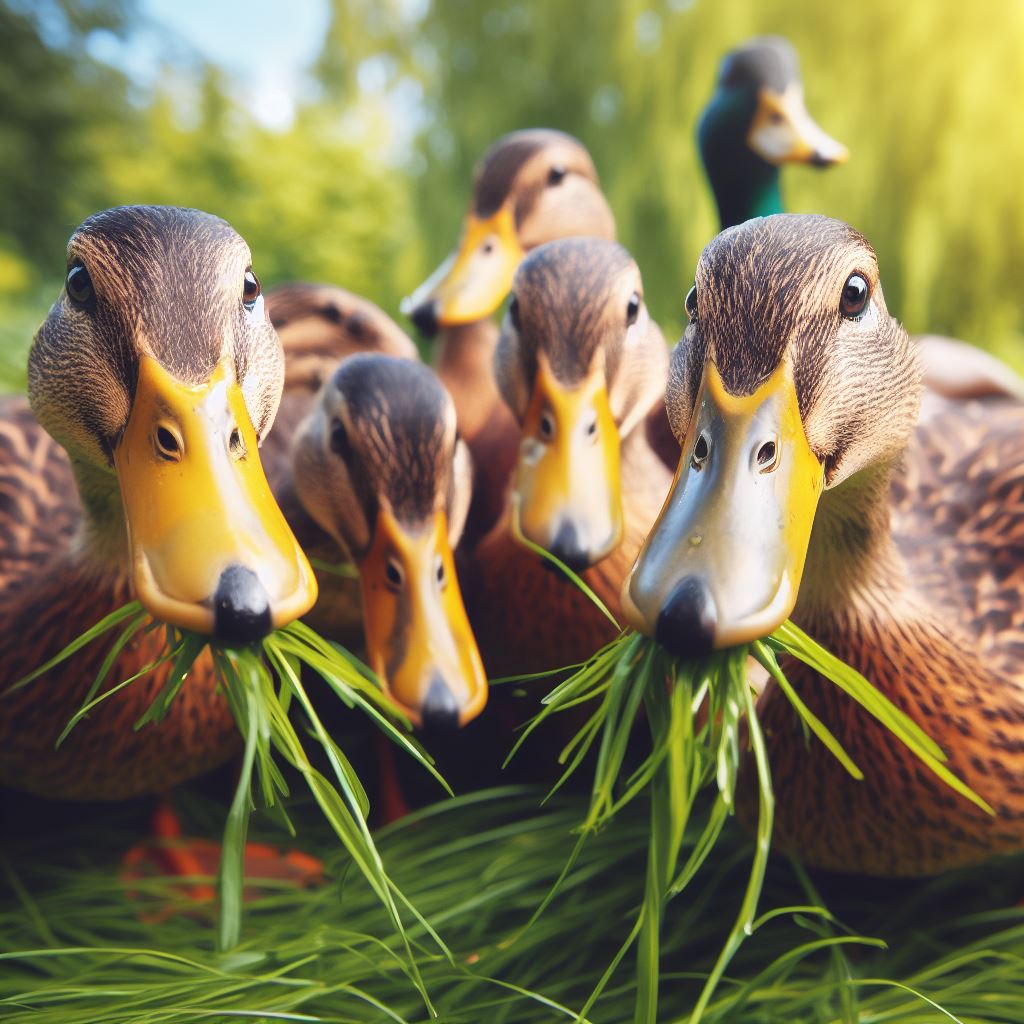
Table of content:
Do Ducks Eat Grass? Ducks are a familiar sight grazing in parks and wetlands. Their diet is diverse, taking advantage of the variety of food sources available in their habitats. So do ducks really eat grass or is it just a small part of their overall nutritional intake?
Key Takeaways:
- Ducks are omnivores that enjoy grazing but grass is not a primary food source.
- The diet of ducks shifts based on habitat, breeding conditions, and domestication.
- Grass provides some nutritional value but ducks require a diverse diet for optimal health.
- Offer domestic ducks commercial feeds, produce, proteins along with access to quality grass.
- Limit grass intake to 10% of total food for ducks.
- Provide grit to aid digestion of fibrous grass.
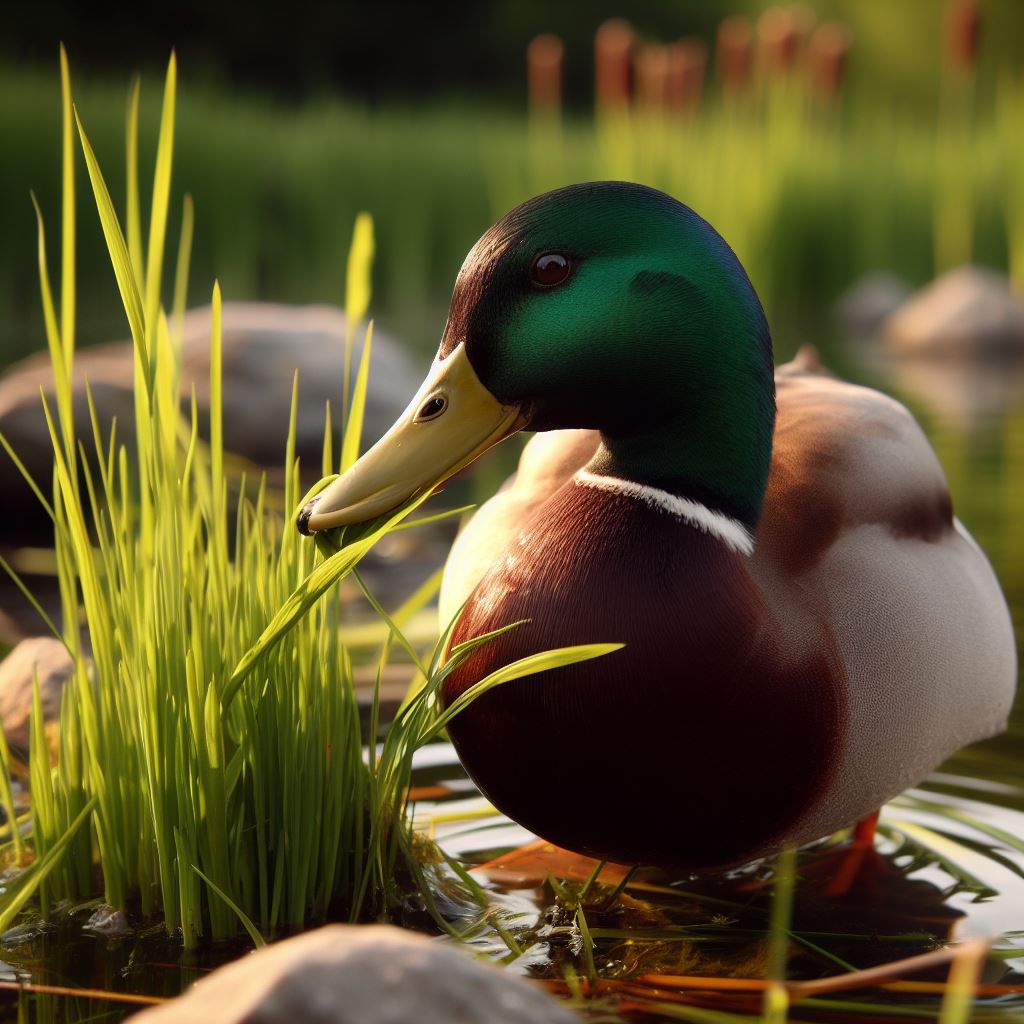 Do Wild Ducks Eat Grass?
Do Wild Ducks Eat Grass?
Wild ducks are omnivores, meaning they eat both plant and animal matter. Their diet varies by habitat, species, and time of year. Grass is part of their diet but is not a primary food source.
Aquatic ducks such as mallards fill much of their diet with foods found in water or along the shoreline:
- Aquatic plants like pondweed, water lilies, sedges, and rushes
- Seeds and vegetation from grasses and shrubs near the water’s edge
- Insects, mollusks, tadpoles, small fish
During breeding season, female ducks require more protein and calcium to produce eggs. They shift their diet towards more animal foods like aquatic insects, snails, and small fish.
Field-feeding ducks like pintails forage for seeds from grasses, sedges, and grains in fields and marshes:
- Smartweed, milkweed, cordgrass, ryegrass, millet
- Waste corn, wheat, barley from agricultural areas
- Invertebrates like beetles, dragonflies, worms
Grass supplements their diet but comprises a smaller portion than aquatic plants and grains which provide more nutrients.
Do Domestic Ducks Eat Grass?
Domestic ducks derive more nutrition from grains and commercial feed than grass. Like geese, they are descended from wild mallards but have been bred for meat and egg production. Their diet reflects this:
- Layer pellets provide concentrated protein for egg-laying ducks.
- Starter feeds with 20-24% protein help young ducklings grow.
- Whole grains like corn, wheat, barley, oats
- Leafy greens, vegetable scraps for nutrients
- Grass, seeds, insects from foraging
While domestic ducks will nibble grass, it provides limited nutritional value compared to commercial feeds and grains should make up the bulk of a domestic duck’s diet, supplemented with foraging.
During breeding season, additional protein and calcium support egg production.
Why Do Ducks Eat Grass?
Though not a primary food source, grass does contribute to a balanced duck diet:
- Roughage – The fiber in grass aids digestion and gut health.
- Foraging – Dabbling in shallow water for tender shoots and grazing provides ducks an opportunity to forage naturally.
- Grit – Long blades of grass help domestic ducks ingest grit to grind food in their gizzard.
- Nutrients – Grass provides some protein, carbohydrates, vitamins though limited compared to other foods.
Ducks have varied nutritional needs depending on habitat, breeding condition, and domestication. Grass alone is not adequate but complements their omnivorous diet.
What Type of Grass Do Ducks Eat?
Ducks take advantage of many grass species growing near water:
- Ryegrass – A favorite of field-feeding ducks with large seeds.
- Cordgrass – Found in saltwater marshes.
- Wild millet – Provides tiny, nutritious seeds.
- Sprinkle top – Perennial grass lining ponds and streams.
- Quackgrass – Abundant species growing in wet areas.
- Goosegrass – Named for popularity among waterfowl.
- Barnyard grass – Weedy species found on farms.
Grasses that produce lots of seeds appeal most to grazing ducks. Fast-growing tender shoots along waterways also attract ducks.
Do Ducks Digest Grass Easily?
Ducks have a digestive system well-adapted to their diverse diet:
- An esophagus transports food to a muscular gizzard filled with grit that grinds up fibrous foods.
- Digestive enzymes and bacteria break down cellulose and starches.
- The intestines absorb carbohydrates, amino acids, vitamins, and minerals.
- A cloaca excretes waste and passes eggs.
Like geese, ducks swallow stones and gravel to accumulate grit in their gizzard to help grind grass, seeds, and insects. Their digestion utilizes nutrients efficiently. Providing grit aids grass digestion in domestic ducks.
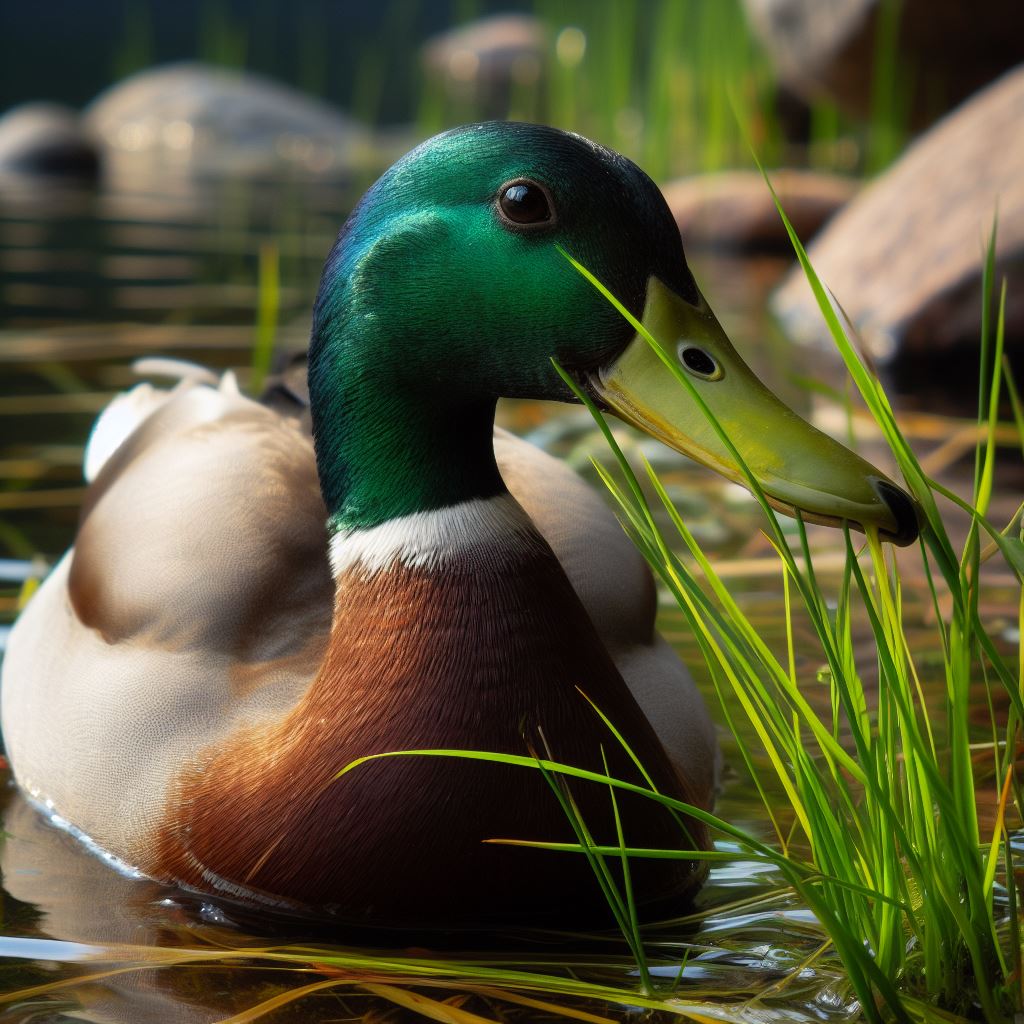 Is Grass Good for Ducks Health?
Is Grass Good for Ducks Health?
Grass provides nutritional value but is not the ideal food for duck health. Aquatic plants, grains, seeds, and animal proteins offer a more balanced diet.
Benefits
- Roughage for healthy digestion
- Herbicide-free grass guarantees organic nutrition
- Grazing allows natural foraging behavior
Drawbacks
- Low protein and nutrients compared to other foods
- Can upset digestion if a large portion of diet
- Commercial lawn grass contains herbicides
- Can compete with chick starter feed
While grass supplements a duck’s menu, it should not exceed 10% of their total food intake for optimal nutrition.
What to Feed Ducks Alongside Grass
To balance grass in their diet, ducks need:
- Animal protein – Mealworms, fish, shrimp, egg
- Calcium-rich foods – Spinach, kale, beet greens
- Grains and pellets – Corn, oats, wheat, layer rations
- Fresh produce – Carrots, peas, zucchini
- Grit – Gravel, oyster shell
Varying their diet ensures ducks receive sufficient amino acids, minerals, and nutrients. Feed variety also maintains digestive health and prevents boredom.
Knowing what ducks eat helps bird lovers care for them appropriately in backyard ponds, farms, and parks. Observing their natural grazing behavior enriches their environment. A varied, balanced diet sustains ducks while allowing their instinct to forage.
Frequently Asked Questions about Ducks Eating Grass
Do baby ducks eat grass?
Ducklings under 3 weeks old do not eat grass. They require high protein starter feeds for healthy growth. Grass may compete with their feed. Introduce small amounts of grass after 3 weeks.
Do domestic ducks need grass?
Domestic ducks do not depend on grass. They need balanced commercial feed. Grass supplements their diet through grazing. Limit grass to 10% of total food.
What percentage of a duck’s diet is grass?
Grass comprises less than 10% of a duck’s diet. Aquatic plants, seeds, grains and animal matter make up more. The proportion varies by habitat and species.
When do ducks start eating grass?
Ducklings start sampling tender grass shoots around 3-4 weeks old once they develop digestive enzymes to process vegetation. Grass becomes part of their diet after switching from starter feed.
Is grass enough for ducks to eat?
No, grass alone does not provide complete nutrition for duck health. Ducks need a varied diet with commercial feed, produce, proteins and grains. Grass supplements this but should be limited.
Conclusion
For ducks, grass complements their diverse diet but does not provide adequate nutrition on its own. Understanding a duck’s dietary requirements at different life stages helps ensure they thrive.
By providing habitat rich in plants, grains and insects, the natural foraging behavior of ducks enriches their lives. Observe ducks in the wild or backyard to appreciate the range of foods sustaining our waterfowl friends.
Welcome. I’m Adreena Shanum, the proud owner of this website, and I am incredibly passionate about animals, especially poultry. I founded adreenapets.com as a labor of love, stemming from my desire to share my knowledge and experiences with poultry enthusiasts worldwide.


